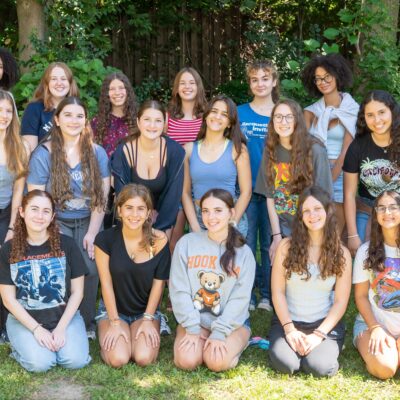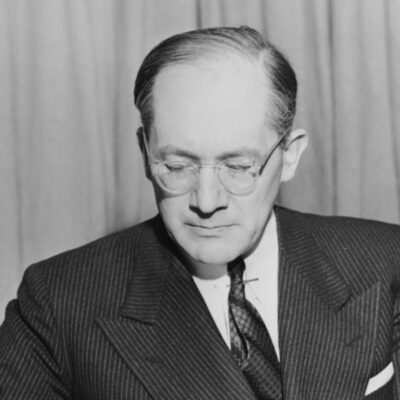Opinion
Conservative Judaism’s procedural paralysis
I loathe debates about whether Conservative rabbis should officiate at interfaith weddings.
No, this isn’t another essay where a rabbi picks one of two predictable sides.
As a rabbi, I love every Jew, and I love everyone who loves a Jew. And officiation is an important and consequential debate where many rabbis I respect deeply take diametrically opposite stances. But truthfully, each time I read another headline on this topic, the question I find myself asking is not should we or shouldn’t we. Instead, I find myself asking: No matter what we decide, what’s our plan?
Changing the officiation policy might add some numbers here and subtract some there, but would it alter the larger trajectory? Doubtful. Reform Judaism has welcomed interfaith officiation, in some form, for decades, yet it faces many of the same challenges as we do. Meanwhile, Chabad and Orthodox kiruv organizations continue to grow rapidly despite far stricter stances.
So why does this topic continue to dominate headlines?
Because there are too few other headlines about Conservative Judaism moving forward on any front.
In the absence of visible momentum — whether rebuilding our youth pipeline, addressing our clergy crisis, or investing in communities we have neglected — it’s easier to obsess over the one issue that feels at least somewhat tied to our future because any direct action should be directly related to a larger strategy of revival and rebirth.
The deeper problem is not officiation but orientation.
Too often, our default response to decline is to launch yet another commission, listening campaign or strategic plan. But this procedural instinct is itself the most apparent symptom of our non-strategy. And it’s a flaw we can fix — if we choose to.
Democracy’s procedural fetish
Solomon Schechter loved democracy. He even gave the first organization dedicated to the promotion of Conservative Judaism the acronym USA (the United Synagogue of America, now the United Synagogue of Conservative Judaism). Not surprisingly, the most vibrant Jewish communities worldwide are in democratic countries.
But today, Michael Bagley of the University of Michigan warns that the United States’ democracy is under threat not due to any particular politician or political party, but primarily because of what he calls “the procedure fetish.”
When any government wants to accomplish a significant task, it must navigate a complex set of rules and regulations. The more steps in the process, the longer it takes, the higher the costs, and, in many cases, the more diluted the outcome. While Bagley argues that procedure has a vital role in democratic governance, “Endlessly wringing our hands over agency legitimacy and accountability breeds contempt for governance.” What we might end up with is something that Francis Fukuyama calls a “vetocracy,” a system so clogged with veto points that it only succeeds in raising “the costs of collective action, sometimes making it impossible.”
Consider how this paradigm applies to Conservative Judaism.
When Conservative Judaism expanded, a series of systems were created to operate this Judaism at scale. Every profession established a professional organization, which then developed placement systems with rules and procedures, and norms were established over who could do what and when to maintain institutional peace.
Today, these systems are struggling at every level; that’s old news. But what remains? The procedures!

The surfeit of organizations has not abated, even though the number of people the system serves continues to contract. Each of these organizations has a board, bylaws, financial assets, internal culture and external perceptions of the other organizations. And while outrage ensues when yet another program that provides tremendous value gets cut, the infrastructure that should be held accountable for the results it produces remains.
But what about inspiring models like Ikar, Hadar, etc., you ask? These amazing communities are the mic-drop for the current system’s sclerotic nature. In far too many cases, when visionaries had a fantastic idea to try something new, why bother with the current systems if all they would get was endless committee meetings and few new resources at the end of the process?
But lest you think that this is merely another litany of complaints about Conservative Judaism, hold your horses. I could write a similar piece about Reform Judaism and any number of legacy organizational systems. And at a time when millions of people need these systems to be maximally effective, the weight of these procedures weighs them down when they need them most.
The principle of prioritizing results over procedures is a key pillar of Ezra Klein and Derek Thompson’s recent book Abundance. In it, they analyze the consequences of excessive procedures and veto points on innovation in American democracy. While Klein and Thompson note that while every procedure in a democracy might seem rational, “the collective consequences are maddening,” and it results in leaders developing a false assumption that their primary job is to engage in “compliance with an endless catalog of rules and restraints rather than through getting things done for the people it claimed to serve.”
Sound familiar?
Playing the lottery
Since I was in elementary school, I’ve climbed the ladder of Conservative Judaism. I learned how to play the game (pretty well, I think), yet sometimes I wondered: What game was I playing?
I thought about this journey when I reread a piece by Adam Grant in The New York Times about sortition, the process of choosing leaders by lottery. Grant argues that in a time of deep distrust of government, the United States might benefit from a radical reset in picking our leaders.
Grant’s piece reminded me of a speech given in 2011 by Rabbi Ed Feinstein, always a blue-flame thinker on Conservative Judaism, about the need for Conservative Judaism to hold a constitutional convention and restart. Rabbi Feinstein’s proposal never came to fruition, and it’s not hard to imagine why: Reordering our ecosystem requires that people vote themselves out of office, and often these people have worked years, sometimes decades, to climb the existing ladder. Moreover, when people criticize “the Conservative movement,” they are not criticizing a specific person or organization but a highly decentralized system, one where a tragedy of the commons can reign supreme.
But if Conservative Judaism wants to stop its long, slow decline, what may be necessary is a complete reset of the incentive structures around who gets the power to make decisions. Would I be selected in such a lottery? Probably not; statistically, the odds are low. But as the authors of a recent article in the Stanford Social Innovation Review point out, sometimes a truly open search for leadership is the only way to break the risk aversion, patronage and scarcity mentality of “self-replicating” boards.
For decades, it’s been an open secret that many past and present professional and lay leaders of key organizations in Conservative Judaism, including me, are pleased, even eager, to openly complain about the incompetence of every other leader and organization in our ecosystem (except, of course, for the one where they held power.) In this environment of almost open disrespect, why are we surprised that nothing gets done?
The system is working exactly as intended, and that’s the problem. How would a hard reset be any worse than the status quo?
Find the rainbows
Looking at Conservative Judaism’s ecosystem, I sometimes feel like Noah stepping out of the ark after the flood: surveying devastation, yet searching for signs of life. In his commentary on the rainbow, Malbim notes that before the flood, rainbows were rare, but the storm reordered the clouds so that light could finally break through. And in our movement, too, I still see the rainbows.
Despite our shrinkage, I see synagogues where I’d be proud to daven any day of the year.
Despite our leadership drought, I see rabbis, cantors, educators, and lay leaders burning with conviction.
Despite our cries of poverty, I see assets waiting to be redirected toward a stronger future.
And despite triumphalist predictions of Conservative Judaism’s death for decades, we are still here.
I have my share of frustrations with particular leaders and organizations, but the real albatross to Conservative Judaism’s revival isn’t any individual. It’s a system that long predates today’s leadership. If we truly want to live in the light of the rainbow rather than the shadow of the flood, we must face our system’s limits and find the courage to begin anew.
May it happen soon, and may it happen in our days.
Rabbi Joshua Rabin is the rabbi of the Astoria Center of Israel and author of the Substack newsletter ”Moneyball Judaism.”

 Add EJP on Google
Add EJP on Google









